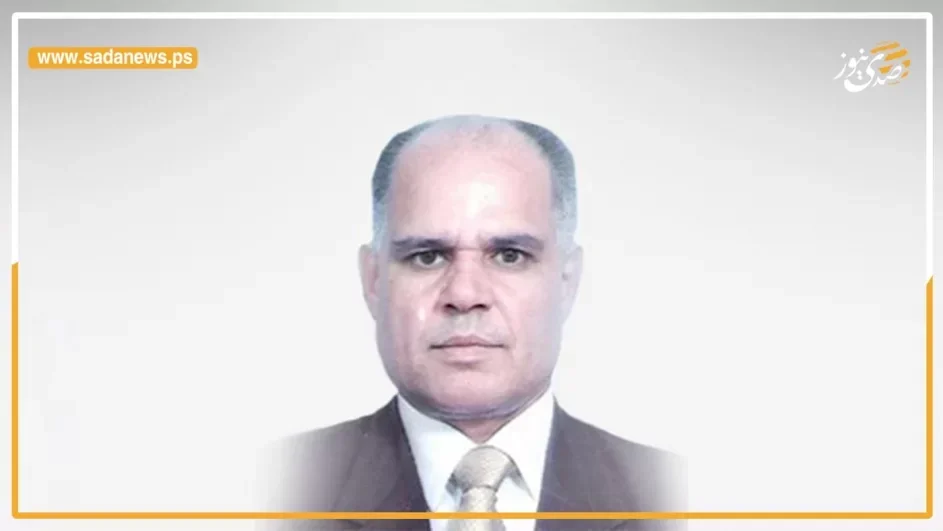
We Feel Your Pain, Majdi
Our pain does not stop at what is happening to our people in the Gaza Strip, with death, disease, and hunger, to the extent that we can no longer bear the scenes broadcasted by the satellite channels as if they were ordinary events; this pain is shared by all the Palestinian people.
We are pained by the news of any martyr or injured person, just as we are hurt by scenes of people dying from hunger and illness. We are also pained by the state of poverty, the collapse of the value system in the sector, the spread of armed gangs, and the theft of the aid that arrives, as well as the sight of citizens dying in front of American death traps called humanitarian centers for providing aid. We are pained by the sight of children and youth who should be sitting in classrooms in schools or universities, women who should be dignified and respected in their homes, and educated men and businesspeople who are begging and standing in line to receive even a little bit of what keeps them from dying of hunger. It also hurts us to hear of fighters engaging the enemy and being killed without a clear objective and without popular support, just because their leaders abroad want it so. We are more pained by the paralysis and incapacity of the Palestinian political system and all its political class with its parties.
All of this hurts us and causes us pain to the point that we find it embarrassing to talk about our own sufferings.
It is true that the loss and pain are general for all the people, even those outside the sector who are not party leaders. How can the whole people not feel this pain, especially since the crimes of the occupation and the hunger inflicted on our people in the sector have stirred international public opinion, leading to massive protests in many cities around the world condemning the crimes of the occupation and against the starvation of the people of Gaza?
This collective pain renders any discussion of our individual pains, even if they are painful, meaningless.
I was deeply hurt by the martyrdom of my brother Imad at the beginning of the war, leaving behind a family of 10 individuals. Then, months later, I was devastated by the martyrdom of his son Murad, who was the dearest member of the family to my heart, along with his wife and three children, and the injury of the remaining family members, including his mother, sisters, and brothers. After them, my brother Amin’s son Ahmad was martyred, and the situation continues with pleas from some of my remaining brothers and their children for help just to eat, while I cannot do anything but offer the very least, which I know will not solve their problem.
Recently, my pain increased upon hearing the news of my brother-in-law Majdi Marwan Abu Odeh, my wife’s brother, who was shot in the neck while trying to obtain some food for his family from an American death trap in the northern sector. He was shot in the neck, affecting his spinal cord, and has been lying in intensive care at Shifa Hospital for the past 10 days, paralyzed and unable to move.
I specifically mention Majdi here because I considered him like a son due to his high morals, kindness, and love for all people, as attested by all who knew him.
Majdi (Abu Siraj) went to get some food for his children, parents, and siblings and succeeded once in bringing back a bag of flour that he shared with the rest of the family. At other times, he would stay up all night near a distribution point for what are called aid supplies, only to return empty-handed. But he did not despair; how could he when his children and parents were starving? So he would return, knowing and witnessing dozens dying daily in front of American death traps. On the 21st of last month, he went with hope that was not realized in previous times, that he would return victorious with a bag of flour. However, he returned carried on the shoulders of his companions, injured, and by a miracle, they managed to get him to the hospital.
This is the story of Majdi (Abu Siraj), a story shared by thousands of others who have been martyred or injured in front of American death traps in the northern, central, and southern sectors. The war continues, and hunger is claiming hundreds of children from all groups daily, while Hamas continues to negotiate for its survival as a governing authority over what remains of land and people, even under occupation and without popular support.

Huckabee's Statements Reveal the Falsehood of Trump's Peace and Reinforce Religious Confli...

Licensed Occupation by Law

Whoever Does Not Plant Hope, Plants Departure...

Between "Here is Jerusalem" and "Here is Gaza" ... The Voice of a Nation and the Steadfast...

While some count the boos, Palestinians count their martyrs.. Paradoxes of the internation...

When the Palestinian Issue is Reduced to Gaza Management

Legally Licensed Occupation

